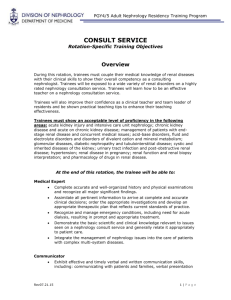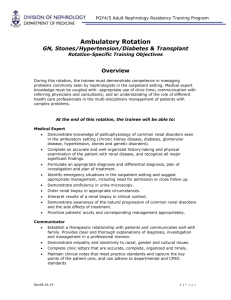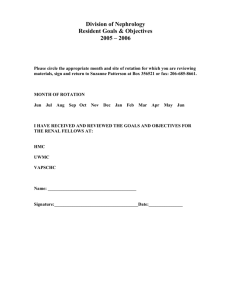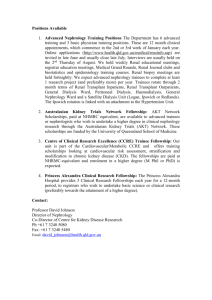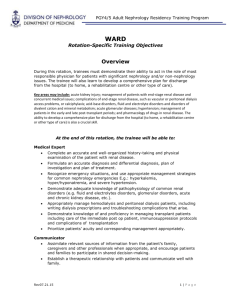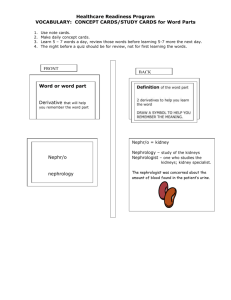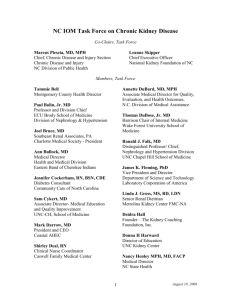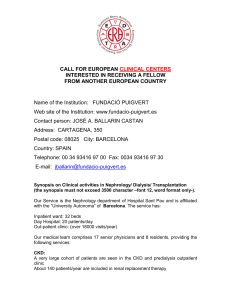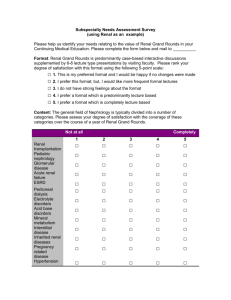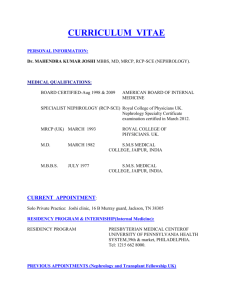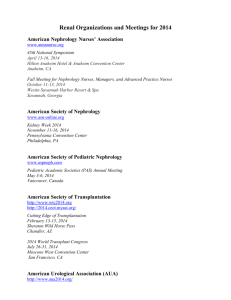Community Curriculum
advertisement
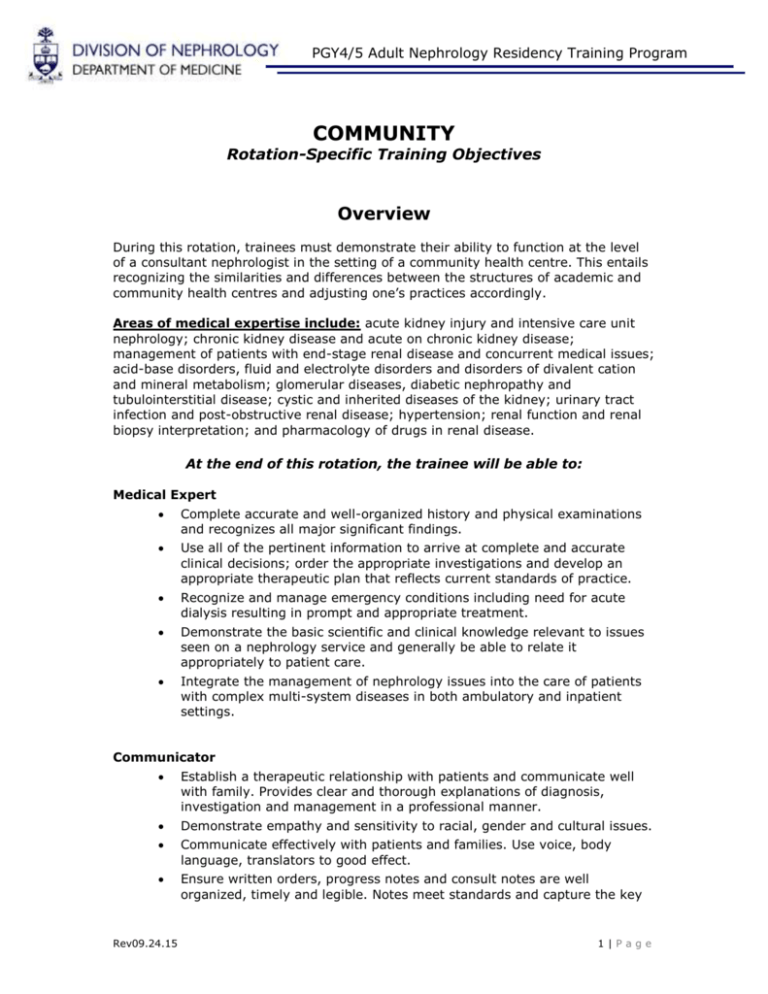
PGY4/5 Adult Nephrology Residency Training Program COMMUNITY Rotation-Specific Training Objectives Overview During this rotation, trainees must demonstrate their ability to function at the level of a consultant nephrologist in the setting of a community health centre. This entails recognizing the similarities and differences between the structures of academic and community health centres and adjusting one’s practices accordingly. Areas of medical expertise include: acute kidney injury and intensive care unit nephrology; chronic kidney disease and acute on chronic kidney disease; management of patients with end-stage renal disease and concurrent medical issues; acid-base disorders, fluid and electrolyte disorders and disorders of divalent cation and mineral metabolism; glomerular diseases, diabetic nephropathy and tubulointerstitial disease; cystic and inherited diseases of the kidney; urinary tract infection and post-obstructive renal disease; hypertension; renal function and renal biopsy interpretation; and pharmacology of drugs in renal disease. At the end of this rotation, the trainee will be able to: Medical Expert Complete accurate and well-organized history and physical examinations and recognizes all major significant findings. Use all of the pertinent information to arrive at complete and accurate clinical decisions; order the appropriate investigations and develop an appropriate therapeutic plan that reflects current standards of practice. Recognize and manage emergency conditions including need for acute dialysis resulting in prompt and appropriate treatment. Demonstrate the basic scientific and clinical knowledge relevant to issues seen on a nephrology service and generally be able to relate it appropriately to patient care. Integrate the management of nephrology issues into the care of patients with complex multi-system diseases in both ambulatory and inpatient settings. Communicator Establish a therapeutic relationship with patients and communicate well with family. Provides clear and thorough explanations of diagnosis, investigation and management in a professional manner. Demonstrate empathy and sensitivity to racial, gender and cultural issues. Communicate effectively with patients and families. Use voice, body language, translators to good effect. Ensure written orders, progress notes and consult notes are well organized, timely and legible. Notes meet standards and capture the key Rev09.24.15 1|Page PGY4/5 Adult Nephrology Residency Training Program points of the patient care, and can are consistent with departmental and CPSO standards. Collaborator Demonstrate knowledge of and respect for the individual team members’ contributions and roles in the care of patients with ESRD/CKD. Effectively communicate plans for patient care with other physicians and health-care professionals. Establish good relationships with peers and other health professionals. Effectively provides and receives information. Leader Effectively lead or contribute to the health care team; delegate and distribute tasks fairly. Demonstrate knowledge of health care systems and allocations of provincial resources. Make cost effective use of health care resources based on sound judgment, balancing resources to maximize benefits to all patients, including managing waiting lists. Demonstrate time management skills to reflect and balance priorities for patient care, sustainable practice, and personal life. Set agenda and provide structure to team meetings. Take on extra tasks if necessary. Health Advocate Demonstrate awareness of the costs of tests and demonstrate sensitivity to inconvenience and discomfort to patient. Scholar Maintain and enhance professional activities through ongoing learning. Critically evaluate medical information and its sources, and apply this appropriately to practice domains. Professional Demonstrate professional behaviour including timeliness, honesty, compassion and reliability. Community Curriculum Please see Appendix A for a comprehensive rotation curriculum Reviewed & approved by RPC Date Rev09.24.15 2|Page
